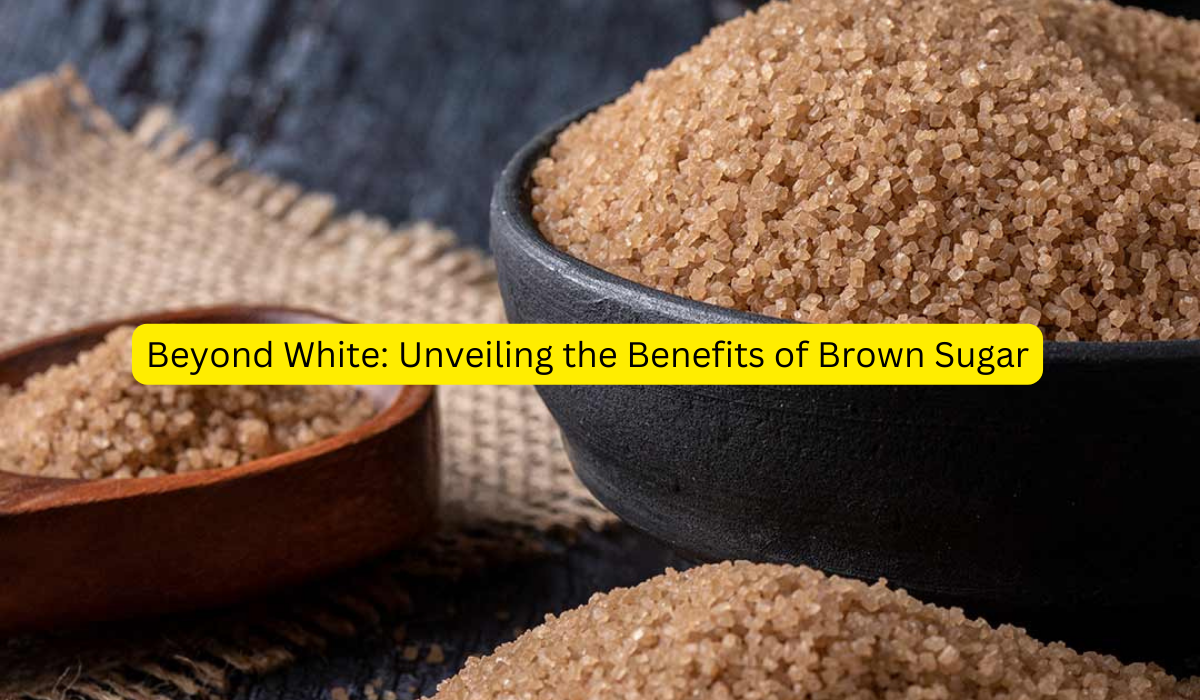Sugar – that sweet little word that can evoke feelings of comfort, indulgence, and maybe a touch of guilt. But when it comes to sweeteners, the world extends far beyond the classic white crystals. Brown sugar, with its warm amber hue and molasses kiss, offers a unique taste and potential benefits that might surprise you. So, ditch the white sugar shaker for a moment, and let’s delve into the world of brown sugar, exploring its advantages and how to incorporate it into your diet.
More Than Just Colored Sugar: The Composition of Brown Sugar
Brown sugar isn’t just white sugar with a makeover. Imagine it as a more complex version, created when some of the molasses (a syrup byproduct of sugar refining) is left behind during the processing of sugarcane. This residual molasses gives brown sugar its distinctive color, richer flavor, and slightly higher moisture content compared to white sugar.
There are several varieties of brown sugar, each with slightly different molasses content and flavor profiles. Light brown sugar has a milder molasses content and a subtle sweetness, while dark brown sugar boasts a deeper molasses flavor and a higher moisture content, making it ideal for moist and chewy baked goods.
Beyond Sweetness: Potential Health Benefits of Brown Sugar
While all sugars should be enjoyed in moderation, brown sugar offers some potential advantages over its white counterpart:
- Trace Minerals: The molasses in brown sugar contributes a small amount of essential minerals like calcium, potassium, and iron. Think of it as a tiny sprinkle of these minerals, offering a slight nutritional boost compared to white sugar.
- Potential Antioxidant Activity: Molasses contains antioxidants that might offer some health benefits, although more research is needed to confirm their specific impact.
- Moisture Retention: The higher moisture content of brown sugar can help baked goods stay moist and chewy for longer. Imagine it as a built-in humidifier for your cookies, keeping them soft and delightful.
It’s important to remember that brown sugar still contains calories and should be consumed in moderation. A healthy diet focuses on whole foods, and added sugars, regardless of their source, should be limited.
Sweetening Your Life: How to Use Brown Sugar
Brown sugar isn’t just for baking cookies and cakes. Think of it as a versatile sweetener that can elevate various dishes:
- Baking: Brown sugar is a star ingredient in cookies, brownies, cakes, and muffins, adding a rich caramel-like flavor and moisture.
- BBQ and Glazes: The smoky sweetness of brown sugar complements BBQ sauces and glazes perfectly.
- Marinades: Brown sugar can add a touch of sweetness and depth to marinades for meats and vegetables.
- Beverages: A dash of brown sugar can add a touch of warmth and complexity to hot beverages like coffee or tea.
Remember, brown sugar is slightly sweeter than white sugar, so you might need to adjust your recipe slightly when substituting one for the other.
The Bottom Line: Brown Sugar – A Sweet Addition, Not a Health Food
Brown sugar offers a unique flavor profile, potential trace minerals, and can be a valuable tool in your baking and cooking arsenal. However, it’s still a form of sugar and should be enjoyed in moderation as part of a balanced diet.
If you’re looking to add a touch of sweetness and complexity to your dishes, brown sugar can be a delightful option. But remember, prioritize whole foods and mindful eating habits for a healthy lifestyle.
Frequently Asked Questions
1. Is brown sugar healthier than white sugar?
Brown sugar does contain a small amount of trace minerals that white sugar lacks. However, both are forms of sugar and should be consumed in moderation. Think of them as different shades of the same color (sweetness), with brown sugar offering a slight nutritional edge but still needing moderation.
2. Can I substitute brown sugar for white sugar in all recipes?
Yes, you can generally substitute brown sugar for white sugar in most recipes. However, due to its higher moisture content, brown sugar might affect the texture of some baked goods. You might need to adjust the amount of liquid ingredients in the recipe for optimal results.
3. Is brown sugar a good source of molasses?
Brown sugar does contain molasses, but it’s not a concentrated source. For a stronger molasses flavor, using molasses directly in your recipe might be a better choice.
4. Does brown sugar expire?
Brown sugar can harden over time, but it doesn’t necessarily go bad. If it hardens, you can easily soften it by microwaving it for a few seconds with a damp paper towel.

